Meet the Team

President
Professor Antonio Giordano is originally from Naples, Italy.
When Professor Giordano started SHRO he wanted to create an organization that would focus on biomedical research, providing opportunities for young brilliant minds to come from around the world to research in his laboratories. It was also very important to Dr. Antonio Giordano that SHRO remains autonomous in terms of academics and funding so SHRO is solely funded through private grants and donations. Mario Sbarro took a leap of faith in 1993 by providing funding to Sbarro Institute to get started. Mr. Sbarro remains a valuable part of our organization to this day. Since we opened our doors in 1993 we have had the great privilege to train hundreds of students from around the world and watch them succeed in different disciplines of medicine and medical research.
All of the staff here at SHRO has a solid commitment to mentoring young researchers and together we have accomplished great feats in the field of cancer
and health research. From Professor Antonio Giordano’s personal research endeavors he identified the tumor suppressor gene Rb2/p130. This gene restrains the size of tumors inhibiting their growth. This gene is active in lung, endometrial, brain, breast, liver and ovarian cancers.
“Think of genetic research as language. We have identified the words; now we are constructing the dictionary and learning the rules of grammar. Our task is to continue assembling the dictionary and perhaps the construction of a few grammatically accurate sentences. The goal is to eventually add new chapters to the novel of life” – Professor Antonio Giordano, M.D., Ph.D.
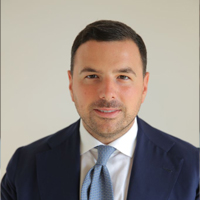
Giancarlo Arra
Vice President
I am originally from Naples I am a big fan of Napoli football, I love traveling and getting to know new places. I have been working in SHRO for 10 years, after various training experiences abroad I decided to enter bringing my know-how. I am Vice President of the SHRO group with executive delegation in Italy and I manage all external relations. SHRO is more than a family to me
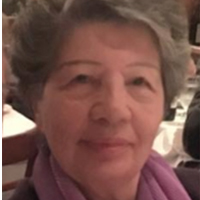
Grace Auteri
Director of Finance
I am originally from Gioia Tauro, Province of Reggio Calabria Italy. I have been with SHRO for 13 years and I am fully dedicated to our mission to autonomously provide valuable fieldwork to the field of cancer and health research.
I come from a family of engineers, mathematicians, and accountants so finance has always been a natural fit for me. S.H.R.O. is my second home, I think of all the young scientists that come into this organization like my children and I love giving them advice and helping them to adjust in this country if they are here from abroad.
We truly are family here and the criteria to work here is different than other working environments because we are loyal to one another and to our cause. We have a very small but dedicated administrative staff so that the majority of our funding can go directly towards our research goals.
I have been in America since the 60s. I find the most cherished aspect of America is the sense of optimism for the future and the fact that any hard working person can persevere. My husband and I are soo lucky to have two wonderful children and 5 beautiful grandchildren.
I come from a family of engineers, mathematicians, and accountants so finance has always been a natural fit for me. S.H.R.O. is my second home, I think of all the young scientists that come into this organization like my children and I love giving them advice and helping them to adjust in this country if they are here from abroad.
We truly are family here and the criteria to work here is different than other working environments because we are loyal to one another and to our cause. We have a very small but dedicated administrative staff so that the majority of our funding can go directly towards our research goals.
I have been in America since the 60s. I find the most cherished aspect of America is the sense of optimism for the future and the fact that any hard working person can persevere. My husband and I are soo lucky to have two wonderful children and 5 beautiful grandchildren.
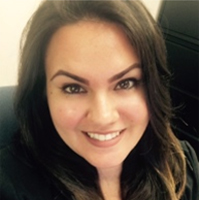
Marinela Dedaj
Administrative Coordinator
I am originally from Albania but I moved to America when I was eight years old. I have been working at SHRO for two years. I graduated from La Salle University with a major in Psychology and a minor in French. I was a summer intern at SHRO before working here full-time post-graduation. I am currently enrolled as a first-year part-time student in the Master’s in Counseling Psychology Program at Temple University.
I speak English, French, Spanish, and my native tongue Albanian. Working at SHRO is both challenging and rewarding as I have acquired and mastered a variety of many new skills. My favorite part of the job is conducting seminars for both our department and Temple University.
Recently, we had Dr. Gary Stein, the Director of the University of the Vermont Cancer Center lead a seminar called “The Architecturally Dynamic Genetic and Epigenetic Landscape of Cancer Biology and Pathology”. In addition, I have expanded my knowledge in graphic design during my time at SHRO and have attended training for Policy and Procedures for international Visiting Research Scholars and Postdoctoral Fellows that come to work in our labs.
I speak English, French, Spanish, and my native tongue Albanian. Working at SHRO is both challenging and rewarding as I have acquired and mastered a variety of many new skills. My favorite part of the job is conducting seminars for both our department and Temple University.
Recently, we had Dr. Gary Stein, the Director of the University of the Vermont Cancer Center lead a seminar called “The Architecturally Dynamic Genetic and Epigenetic Landscape of Cancer Biology and Pathology”. In addition, I have expanded my knowledge in graphic design during my time at SHRO and have attended training for Policy and Procedures for international Visiting Research Scholars and Postdoctoral Fellows that come to work in our labs.

Silvia Boffo
PhD in Pharmacological Science
Research Assistant Professor (NTT) at Temple University, Philadelphia PA. I am originally from Venice, Italy and I have been at SHRO for four years: (1.5 years to complete my PhD, 3 years as a postdoc) I received my Bachelor Degree and my Masters degree from University of Trieste in Italy. I obtained my PhD from the University of Padua in Italy in Pharmacological Science.
My primary focus at this time is in the area of lung cancer. Lung cancer is the leading cause of cancer deaths in the US. Identifying molecular targets centered on the early stages is of the utmost importance. Normal cells become tumor cells through deregulation of multiple pathways. Pin1 is overexpressed in many different cancer types and has been shown to serve as a poor prognostic factor. The molecular mechanisms by which Pin1 increases tumor cell proliferation are unknown.
We developed a Pin1-overexpression mouse model and found that Pin1 overexpression contributes to a higher incidence of lung adenocarcinoma, suggesting Pin1 as having a promoting effect toward carcinogenesis. We hypothesize that Pin1 increases lung tumorigenesis by altering the cell cycle.
Our goal is to determine the molecular mechanism by which Pin1 overexpression contributes to altered cell-cycle regulation. This study has the high potential to shed light on tumor-initiating events in lung cancer, providing novel information for therapeutic intervention.
My primary focus at this time is in the area of lung cancer. Lung cancer is the leading cause of cancer deaths in the US. Identifying molecular targets centered on the early stages is of the utmost importance. Normal cells become tumor cells through deregulation of multiple pathways. Pin1 is overexpressed in many different cancer types and has been shown to serve as a poor prognostic factor. The molecular mechanisms by which Pin1 increases tumor cell proliferation are unknown.
We developed a Pin1-overexpression mouse model and found that Pin1 overexpression contributes to a higher incidence of lung adenocarcinoma, suggesting Pin1 as having a promoting effect toward carcinogenesis. We hypothesize that Pin1 increases lung tumorigenesis by altering the cell cycle.
Our goal is to determine the molecular mechanism by which Pin1 overexpression contributes to altered cell-cycle regulation. This study has the high potential to shed light on tumor-initiating events in lung cancer, providing novel information for therapeutic intervention.
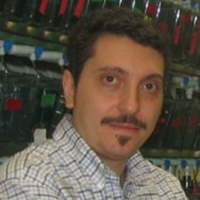
Gianfranco Bellipanni
Assistant Professor (NTT) and Director of the Developmental Biology Program at SHRO.
I am originally from Cefalú, Italy and I have been with SHRO for 10 years. At SHRO I am currently working on three major ongoing research projects. I am researching the roles of canoical Wnt signaling in Early Zebrafish Embryo Development and Cancer. I am modeling pain in Zebrafish to determine if lower vertebrates are able to experience pain.
This is important because at this time we are unsure if evolutionarily less complex vertebrates contain the network of neurons to feel pain. I am also modeling Human Pathologies in the Zebrafish, if we can model with Zebrafish we can conduct high throughput screening that will lead to aid in the development of new, more efficient pharmaceutical drugs for numerous ailments. I have been lucky to mentor several talented young scientist many of whom have been awarded fellowships during our time together.
I currently teach General Biochemistry I; Developmental Biology; Evolutionary Developmental Biology; System Biology at Temple University. When I am not at work or teaching I am very interested in business and innovation. I obtained an MS in Innovation Management and Entrepreneurship at the Fox Business School. With my wife Anna I am the Co-founder of Solo Dolce LLC, which is dedicated to Italian artisan pastries production
This is important because at this time we are unsure if evolutionarily less complex vertebrates contain the network of neurons to feel pain. I am also modeling Human Pathologies in the Zebrafish, if we can model with Zebrafish we can conduct high throughput screening that will lead to aid in the development of new, more efficient pharmaceutical drugs for numerous ailments. I have been lucky to mentor several talented young scientist many of whom have been awarded fellowships during our time together.
I currently teach General Biochemistry I; Developmental Biology; Evolutionary Developmental Biology; System Biology at Temple University. When I am not at work or teaching I am very interested in business and innovation. I obtained an MS in Innovation Management and Entrepreneurship at the Fox Business School. With my wife Anna I am the Co-founder of Solo Dolce LLC, which is dedicated to Italian artisan pastries production
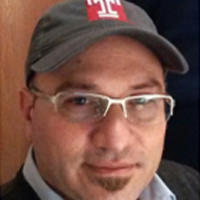
Pierluigi Scalia
Adjunct Professor
My name is Pierluigi Scalia, I was born in Caltanissetta, Italy. I have been with SHRO since 2015. I am a physician-scientist and an Italian-American scientist and social entrepreneur (class 1968). Since graduation in Medicine and Surgery at the University of Catania, I continued my career at the Californian Institutions (UCSF, USC) which granted me American citizenship based upon scientific merits and the Italian title of doctor of endocrine-molecular sciences.
Two decades of experience in basic and applied research in the academic and private sector backed by international scientific publications and patented cancer biomarker research. I am the author of several peer-reviewed scientific articles in oncology and owner of patented research on a tumorigenic mechanism of proliferation and blood vessel formation shared by solid tumors.
I am a cofounder of ISOPROG, a SHRO affiliated Italian non-profit research organization focusing on the personalization of cancer treatments through both collaborative and intramural projects http://www.isoprog.org
Two decades of experience in basic and applied research in the academic and private sector backed by international scientific publications and patented cancer biomarker research. I am the author of several peer-reviewed scientific articles in oncology and owner of patented research on a tumorigenic mechanism of proliferation and blood vessel formation shared by solid tumors.
I am a cofounder of ISOPROG, a SHRO affiliated Italian non-profit research organization focusing on the personalization of cancer treatments through both collaborative and intramural projects http://www.isoprog.org
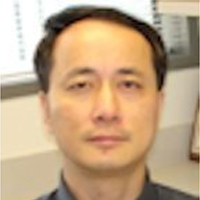
Dr. Shuo Dong
Research Faculty
I am originally from China, although I have been in America for 20 years. I have been working at SHRO for 2 years, and previously I worked in Houston Texas at Baylor College of Medicine. My research throughout my career has focused on myeloid Leukemia. I was involved in the research of Retinoic Acid which is now drugs used to treat AML PML-RARA Leukemia. Before the use of this drug along with Arsenic Trioxide there was a 10% survival rate for this kind of Leukemia, today there is a 90% survival rate.
I am currently working on other translocation genes such as CBFA2T3-GLIS2 which have a high fatality rate but I believe that as our experimentation continues will have a significant breakthrough within the next five years with this disease.
I am currently working on other translocation genes such as CBFA2T3-GLIS2 which have a high fatality rate but I believe that as our experimentation continues will have a significant breakthrough within the next five years with this disease.

Kenneth O. Simbiri, M.S, MRIPH, PhD.
Adjunct Associate Professor, Adjunct Research Professor
I was born and raised in Kenya. I attended Houghton College, NY where I obtained BS in Biology and Psychology. I attained an MS. in Social and Preventive Medicine from SUNY-Buffalo, NY. I acquired my PhD. in Public Health from Temple University, PA.
For the past several years I have devoted my research to pathogenic infectious agents that contribute to disease in humans. I studied Schistosomiasis that causes liver and bladder cancers, and may affect the eyes too. Later I focused on HIV studying the different subtypes and determining the virus effect on efficacy of children vaccines.
This consortium work led to setting up of HIV antiviral therapy and vaccination standards in children. Adults with HIV infection develop dementia, later called HIV dementia. I studied the pathogenic events involved in the disease. This led to the revelation that some viral particles do cross the blood/brain barrier leading to production of inflammatory factors that have been associated with infectious agents and cancer. These findings led to my interest in studying the role of infectious agents such as HIV in initiation of cancer. The accepted dogma then, and in some cancers that are caused by infectious agents was that one virus or bacteria was involved.
My contention was that more than one agent was involved and that they interact in different levels to initiate the disease. Studying Ocular Surface Squamous Neoplasia (OSSN), I showed that contrary to the belief then that only HPV was involved; EBV, KSHV were also involved, and possible other pathogens that have not been identified. I have since identified other pathogenic sequences in the OSSN tissues. Thus, our work has shown the association of the pathogenic viruses with ocular cancers that will have an impact on translational medicine. With the latest technology we are beginning to find that other pathogens may also be involved, and the interaction of these pathogenic oncogenes as they usurp the pathways in cell cycle is of considerable significance to us.
For the past several years I have devoted my research to pathogenic infectious agents that contribute to disease in humans. I studied Schistosomiasis that causes liver and bladder cancers, and may affect the eyes too. Later I focused on HIV studying the different subtypes and determining the virus effect on efficacy of children vaccines.
This consortium work led to setting up of HIV antiviral therapy and vaccination standards in children. Adults with HIV infection develop dementia, later called HIV dementia. I studied the pathogenic events involved in the disease. This led to the revelation that some viral particles do cross the blood/brain barrier leading to production of inflammatory factors that have been associated with infectious agents and cancer. These findings led to my interest in studying the role of infectious agents such as HIV in initiation of cancer. The accepted dogma then, and in some cancers that are caused by infectious agents was that one virus or bacteria was involved.
My contention was that more than one agent was involved and that they interact in different levels to initiate the disease. Studying Ocular Surface Squamous Neoplasia (OSSN), I showed that contrary to the belief then that only HPV was involved; EBV, KSHV were also involved, and possible other pathogens that have not been identified. I have since identified other pathogenic sequences in the OSSN tissues. Thus, our work has shown the association of the pathogenic viruses with ocular cancers that will have an impact on translational medicine. With the latest technology we are beginning to find that other pathogens may also be involved, and the interaction of these pathogenic oncogenes as they usurp the pathways in cell cycle is of considerable significance to us.
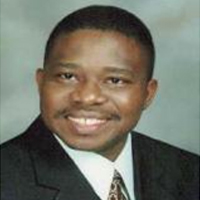
Dr.Olayinka Olabinjo
I have been working for Temple University, Information Technology Services for the past 13 years and have been supporting SHRO Institute for all their technological needs.
I am originally from Nigeria where I had my first Bachelor Degree in Microbiology from the University of Lagos. In 1997, I relocated to United States through diversity visa lottery with my family. Upon arrival to the US, I had my second Bachelor’s degree in Computer Science with minor in Mathematics from Drexel University, PA. After working for a brief period in New Jersey, I joined Temple University ITS and while working at Temple University I obtained my second degree, Masters in Health informatics from Temple University. In 2014, I obtained my PhD in Bioinformatics from Temple University and University of Siena with Dr. Giordano. In a way of giving back to the community, I offer to teach a non-credit course an evening class, Introduction to Personal Computer for PASCEP, Temple University Community Relation for the past few years.
For the past several years I have devoted my research to pathogenic infectious agents that contribute to disease in humans. I studied Schistosomiasis that causes liver and bladder cancers, and may affect the eyes too. Later I focused on HIV studying the different sub types and determining the virus effect on efficacy of children vaccines. This consortium work led to setting up of HIV antiviral therapy and vaccination standards in children. Adults with HIV infection develop dementia, later called HIV dementia. I studied the pathogenic events involved in the disease.
This led to the revelation that some viral particles do cross the blood/brain barrier leading to production of inflammatory factors that have been associated with infectious agents and cancer. These findings led to my interest in studying the role of infectious agents such as HIV in initiation of cancer. The accepted dogma then, and in some cancers that are caused by infectious agents was that one virus or bacteria was involved. My contention was that more than one agent was involved and that they interact in different levels to initiate the disease.
Studying Ocular Surface Squamous Neoplasia (OSSN), I showed that contrary to the belief then that only HPV was involved; EBV, KSHV were also involved, and possible other pathogens that have not been identified. I have since identified other pathogenic sequences in the OSSN tissues. Thus, our work has shown the association of the pathogenic viruses with ocular cancers that will have an impact on translational medicine. With the latest technology we are beginning to find that other pathogens may also be involved, and the interaction of these pathogenic oncogenes as they usurp the pathways in cell cycle is of considerable significance to us.
I am originally from Nigeria where I had my first Bachelor Degree in Microbiology from the University of Lagos. In 1997, I relocated to United States through diversity visa lottery with my family. Upon arrival to the US, I had my second Bachelor’s degree in Computer Science with minor in Mathematics from Drexel University, PA. After working for a brief period in New Jersey, I joined Temple University ITS and while working at Temple University I obtained my second degree, Masters in Health informatics from Temple University. In 2014, I obtained my PhD in Bioinformatics from Temple University and University of Siena with Dr. Giordano. In a way of giving back to the community, I offer to teach a non-credit course an evening class, Introduction to Personal Computer for PASCEP, Temple University Community Relation for the past few years.
For the past several years I have devoted my research to pathogenic infectious agents that contribute to disease in humans. I studied Schistosomiasis that causes liver and bladder cancers, and may affect the eyes too. Later I focused on HIV studying the different sub types and determining the virus effect on efficacy of children vaccines. This consortium work led to setting up of HIV antiviral therapy and vaccination standards in children. Adults with HIV infection develop dementia, later called HIV dementia. I studied the pathogenic events involved in the disease.
This led to the revelation that some viral particles do cross the blood/brain barrier leading to production of inflammatory factors that have been associated with infectious agents and cancer. These findings led to my interest in studying the role of infectious agents such as HIV in initiation of cancer. The accepted dogma then, and in some cancers that are caused by infectious agents was that one virus or bacteria was involved. My contention was that more than one agent was involved and that they interact in different levels to initiate the disease.
Studying Ocular Surface Squamous Neoplasia (OSSN), I showed that contrary to the belief then that only HPV was involved; EBV, KSHV were also involved, and possible other pathogens that have not been identified. I have since identified other pathogenic sequences in the OSSN tissues. Thus, our work has shown the association of the pathogenic viruses with ocular cancers that will have an impact on translational medicine. With the latest technology we are beginning to find that other pathogens may also be involved, and the interaction of these pathogenic oncogenes as they usurp the pathways in cell cycle is of considerable significance to us.
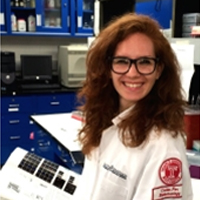
Angela Damato
I am originally from Puglia, Italy. I obtained my Medical Degree at University of Bari in Medicine and Surgery. I received a fellowship in oncology with a focus on pheochromocytoma tumors at the Institute National of Tumors in Milan. Following this experience I started training in oncology at University of Modena and Reggio Emilia where I began working at the Hospital of Parma. It was here where I met Professor Pinto, the President of Association of Italian Oncology, and under his mentorship I began treating gastrointestinal cancers. In May 2016 I moved to a new cancer center named IRCCS-CORE Reggio Emilia with Professor Pinto where I continued studying gastrointestinal cancers.
At this time he suggested I begin a collaboration with SHRO laboratories so I could bring my clinical practice into a research setting. My project here in America is focused on discovering mechanisms that overcome resistances to drugs in oligometastatic colorectal cancer. I will remain working on this project at SHRO for 8 months which is a wonderful experience for me since it is my first endeavor into medical research. I believe it is essential for all physicians to have exposure to both clinical and laboratory practices in order to be well-rounded in our field. This opportunity not only allows me the chance to learn new laboratory techniques but also to improve my English and become fully immersed in American culture.
For the past several years I have devoted my research to pathogenic infectious agents that contribute to disease in humans. I studied Schistosomiasis that causes liver and bladder cancers, and may affect the eyes too. Later I focused on HIV studying the different subtypes and determining the virus effect on efficacy of children vaccines. This consortium work led to setting up of HIV antiviral therapy and vaccination standards in children. Adults with HIV infection develop dementia, later called HIV dementia.
I studied the pathogenic events involved in the disease. This led to the revelation that some viral particles do cross the blood/brain barrier leading to production of inflammatory factors that have been associated with infectious agents and cancer. These findings led to my interest in studying the role of infectious agents such as HIV in initiation of cancer. The accepted dogma then, and in some cancers that are caused by infectious agents was that one virus or bacteria was involved.
My contention was that more than one agent was involved and that they interact in different levels to initiate the disease. Studying Ocular Surface Squamous Neoplasia (OSSN), I showed that contrary to the belief then that only HPV was involved; EBV, KSHV were also involved, and possible other pathogens that have not been identified. I have since identified other pathogenic sequences in the OSSN tissues. Thus, our work has shown the association of the pathogenic viruses with ocular cancers that will have an impact on translational medicine. With the latest technology we are beginning to find that other pathogens may also be involved, and the interaction of these pathogenic oncogenes as they usurp the pathways in cell cycle is of considerable significance to us.
At this time he suggested I begin a collaboration with SHRO laboratories so I could bring my clinical practice into a research setting. My project here in America is focused on discovering mechanisms that overcome resistances to drugs in oligometastatic colorectal cancer. I will remain working on this project at SHRO for 8 months which is a wonderful experience for me since it is my first endeavor into medical research. I believe it is essential for all physicians to have exposure to both clinical and laboratory practices in order to be well-rounded in our field. This opportunity not only allows me the chance to learn new laboratory techniques but also to improve my English and become fully immersed in American culture.
For the past several years I have devoted my research to pathogenic infectious agents that contribute to disease in humans. I studied Schistosomiasis that causes liver and bladder cancers, and may affect the eyes too. Later I focused on HIV studying the different subtypes and determining the virus effect on efficacy of children vaccines. This consortium work led to setting up of HIV antiviral therapy and vaccination standards in children. Adults with HIV infection develop dementia, later called HIV dementia.
I studied the pathogenic events involved in the disease. This led to the revelation that some viral particles do cross the blood/brain barrier leading to production of inflammatory factors that have been associated with infectious agents and cancer. These findings led to my interest in studying the role of infectious agents such as HIV in initiation of cancer. The accepted dogma then, and in some cancers that are caused by infectious agents was that one virus or bacteria was involved.
My contention was that more than one agent was involved and that they interact in different levels to initiate the disease. Studying Ocular Surface Squamous Neoplasia (OSSN), I showed that contrary to the belief then that only HPV was involved; EBV, KSHV were also involved, and possible other pathogens that have not been identified. I have since identified other pathogenic sequences in the OSSN tissues. Thus, our work has shown the association of the pathogenic viruses with ocular cancers that will have an impact on translational medicine. With the latest technology we are beginning to find that other pathogens may also be involved, and the interaction of these pathogenic oncogenes as they usurp the pathways in cell cycle is of considerable significance to us.
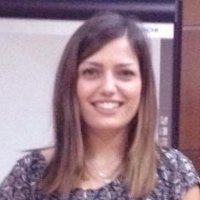
Antonella Caporaso
PhD student from Avellino in Southern Italy. I arrived at SHRO in September to work on my research project which I am currently working on in collaboration with the Wistar Institute. I obtained my undergraduate degree in Human Biology from Tor Vergate University in Rome. I am now working towards my PhD in Genetics Oncology and Clinical medicine. My research project examines DNA damage response to compounds used in chemotherapy. DNA damage when not repaired will cause a cell to die so we are looking to find which proteins can aid in the repair of these affected cells.
Our hope is that we can find new proteins to target in chemotherapy and hopefully couple these new findings with existing cancer treatment options. This is my first time in America, I choose to come here so I could collaborate with the Wistar institute and so I could work to improve my English. My favorite thing about America is that you can rely on yourself, since my personal mentor is currently in Italy I am forced to problem solve on my own regularly.
Culturally I have found Americans to be very free, they have less social rules which allows them to do what they please without experiencing judgement which I think is great.
For the past several years I have devoted my research to pathogenic infectious agents that contribute to disease in humans. I studied Schistosomiasis that causes liver and bladder cancers, and may affect the eyes too. Later I focused on HIV studying the different subtypes and determining the virus effect on efficacy of children vaccines. This consortium work led to setting up of HIV antiviral therapy and vaccination standards in children. Adults with HIV infection develop dementia, later called HIV dementia. I studied the pathogenic events involved in the disease. This led to the revelation that some viral particles do cross the blood/brain barrier leading to production of inflammatory factors that have been associated with infectious agents and cancer.
These findings led to my interest in studying the role of infectious agents such as HIV in initiation of cancer. The accepted dogma then, and in some cancers that are caused by infectious agents was that one virus or bacteria was involved. My contention was that more than one agent was involved and that they interact in different levels to initiate the disease. Studying Ocular Surface Squamous Neoplasia (OSSN), I showed that contrary to the belief then that only HPV was involved; EBV, KSHV were also involved, and possible other pathogens that have not been identified.
I have since identified other pathogenic sequences in the OSSN tissues. Thus, our work has shown the association of the pathogenic viruses with ocular cancers that will have an impact on translational medicine. With the latest technology we are beginning to find that other pathogens may also be involved, and the interaction of these pathogenic oncogenes as they usurp the pathways in cell cycle is of considerable significance to us.
Culturally I have found Americans to be very free, they have less social rules which allows them to do what they please without experiencing judgement which I think is great.
For the past several years I have devoted my research to pathogenic infectious agents that contribute to disease in humans. I studied Schistosomiasis that causes liver and bladder cancers, and may affect the eyes too. Later I focused on HIV studying the different subtypes and determining the virus effect on efficacy of children vaccines. This consortium work led to setting up of HIV antiviral therapy and vaccination standards in children. Adults with HIV infection develop dementia, later called HIV dementia. I studied the pathogenic events involved in the disease. This led to the revelation that some viral particles do cross the blood/brain barrier leading to production of inflammatory factors that have been associated with infectious agents and cancer.
These findings led to my interest in studying the role of infectious agents such as HIV in initiation of cancer. The accepted dogma then, and in some cancers that are caused by infectious agents was that one virus or bacteria was involved. My contention was that more than one agent was involved and that they interact in different levels to initiate the disease. Studying Ocular Surface Squamous Neoplasia (OSSN), I showed that contrary to the belief then that only HPV was involved; EBV, KSHV were also involved, and possible other pathogens that have not been identified.
I have since identified other pathogenic sequences in the OSSN tissues. Thus, our work has shown the association of the pathogenic viruses with ocular cancers that will have an impact on translational medicine. With the latest technology we are beginning to find that other pathogens may also be involved, and the interaction of these pathogenic oncogenes as they usurp the pathways in cell cycle is of considerable significance to us.
